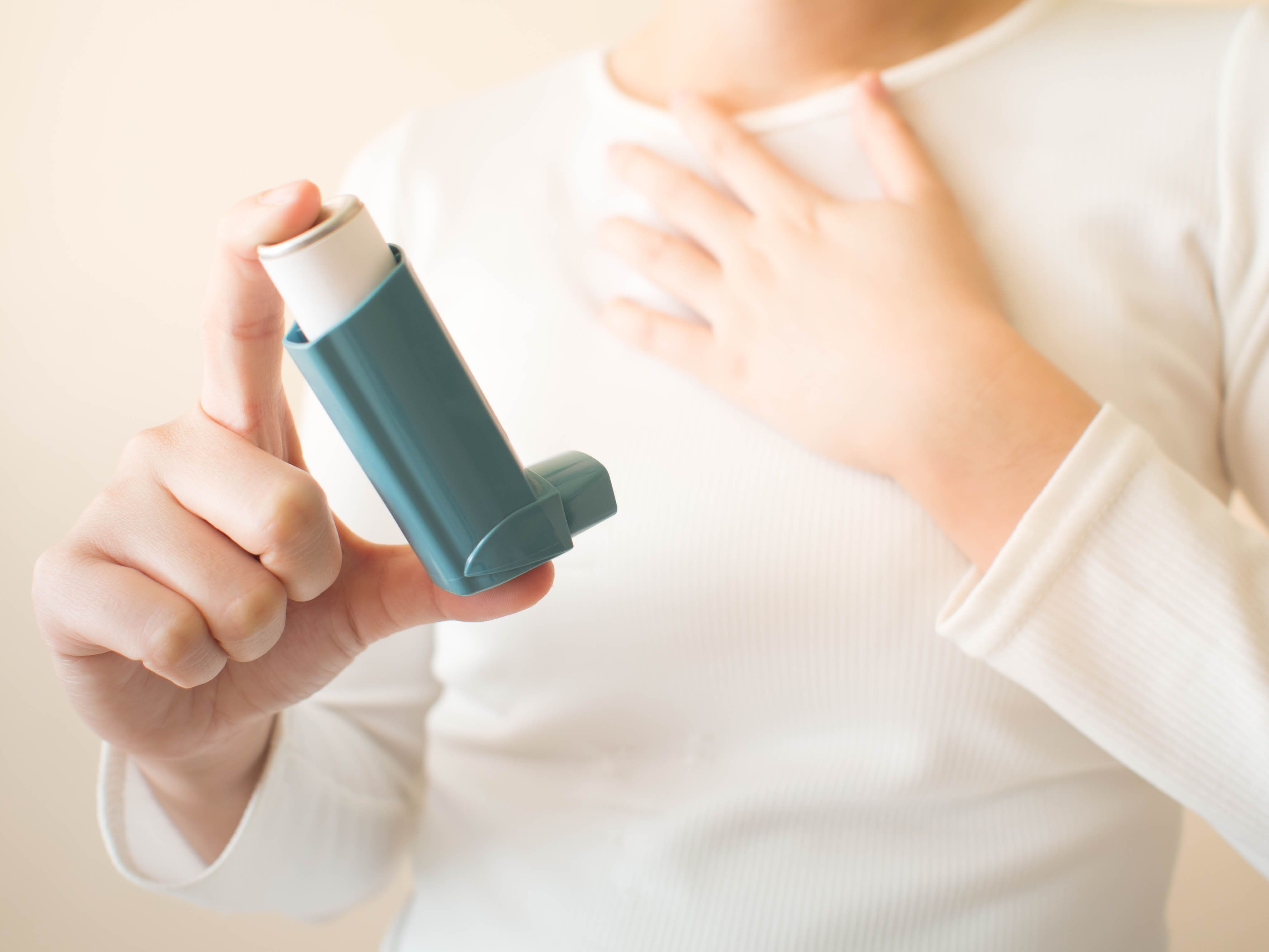- Center on Health Equity & Access
- Clinical
- Health Care Cost
- Health Care Delivery
- Insurance
- Policy
- Technology
- Value-Based Care
Dupilumab Efficacy, Reduced Corticosteroid Use in Children With Moderate to Severe Asthma
Posters presented at ACAAI 2023 Annual Scientific Congress examined dupilumab use in children with moderate-to-severe asthma and in the presence of elevated type 2 biomarkers.
Two posters presented at ACAAI 2023 Annual Scientific Congress found dupilumab reduced asthma exacerbation in children with moderate-to-severe type 2 inflammatory asthma with or without allergic asthma, and reduced systemic corticosteroid use in children with uncontrolled moderate-to-severe asthma regardless of exacerbation history.

Currently, more than 80% of children with uncontrolled, moderate-to-severe asthma also have elevated type 2 biomarkers, often combined with an allergic phenotype. The first study was a post-hoc analysis of the open-label extension EXCURSION study (NCT03560466), which included children who completed VOYAGE (NCT02948959).1
This study aimed to assess the long-term safety and efficacy of dupilumab in children ages 6 to 11 years, with moderate-to-severe type 2 inflammatory asthma with or without evidence of allergic asthma.
Uncontrolled, moderate-to-severe type 2 inflammatory asthma was defined by blood eosinophil counts (≥ 150 cells/µL) or fractional exhaled nitric oxide (FeNO) levels (≥ 20 ppbm) at baseline. Additionally, evidence of allergic asthma was defined by total serum immunoglobulin (IgE) levels (≥ 30 IU/mL) and the presence of 1 or more perennial aeroallergen-specific IgE (≥ 0.35 kU/mL) at baseline.
Out of a total of 315 children with evidence of allergic asthma (74.3%):
- 94.9% had elevated eosinophils
- 92.1% had elevated IgE levels
- 57.8% had elevated FeNO levels
Furthermore, of the children without evidence of allergic asthma (25.7%)
- 94.9% had elevated eosinophils
- 92.1% had elevated IgE levels
- 57.8% had elevated FeNO levels
Children with evidence of allergic asthma (n = 159) had a reduced rate from 2.61 at 12 months prior to VOYAGE, to 0.33 at 52 weeks, and 0.12 at 104 weeks. In the group of children without evidence of allergic asthma (n = 49), the exacerbation rate was reduced from 2.41 at 12 months prior to VOYAGE, to 0.43 at 52 weeks, and 0.12 at 104 weeks.
These findings suggest that most children with elevated type 2 inflammation biomarkers may also have evidence of allergic asthma. Furthermore, dupilumab was found to reduce severe asthma exacerbation rates for up to 104 weeks in this cohort of patients, regardless of allergic asthma.
The second study aimed to evaluate the long-term efficacy in dupilumab in reducing rescue systemic corticosteroid (CSC) exposure in children with uncontrolled, moderate-to-severe asthma. Because the repeated use of SCS is known to have long-term adverse effects, there is a need to reduce exposure, particularly among a pediatric asthma population.2
In VOYAGE, children received dupilumab 100/200 mg every 2 weeks or a placebo, according to body weight. In EXCURSION, all children received dupilumab 100/200 mg every 2 weeks or 300 mg every 4 weeks by body weight for an additional 52 weeks.
The unadjusted annualized rate of severe exacerbations was measured as a deterioration of asthma requiring the use of SCS for 3 or more days or hospitalization/emergency visit because of asthma, requiring SCS. Additionally, pre-bronchodilator percent predicted forced expiratory volume per 1 second (ppFEV1) change was measured from VOYAGE baseline over time through EXCUSRION week 52.
Dupilumab reduced total rescue SCS courses in children with moderate-to-severe type 2 asthma, regardless of prior exacerbations. Children with 1 prior severe exacerbation (n = 77) had reduced SCS use from 0.16 in VOYAGE to 0.90 in EXCURSION. Children with 2 or more prior severe exacerbations had a reduced rescue SCS use from 0.55 in VOYAGE to 0.18 in EXCURSION.
In both VOYAGE and EXCURSION studies, dupilumab was shown to reduce rescue SCS exposure because of reduced severe exacerbations, while improving lung function regardless of the number of prior severe exacerbations.
References
1. Phipatanakul W, Papadopoulos N, Bacharier L, et al. Dupilumab efficacy in children with/without allergic asthma in the presence of elevated type 2 biomarkers. Poster presented at: ACAAI 2023 Annual Scientific Meeting; November 9-13, 2023; Anaheim, California.
2. Sher L, Ducharme F, Hamelmann E, et al. Dupilumab reduces rescue systemic corticosteroid use in children with uncontrolled moderate-to-severe asthma regardless of exacerbation history. Poster presented at: ACAAI 2023 Annual Scientific Meeting; November 9-13, 2023; Anaheim, California.
